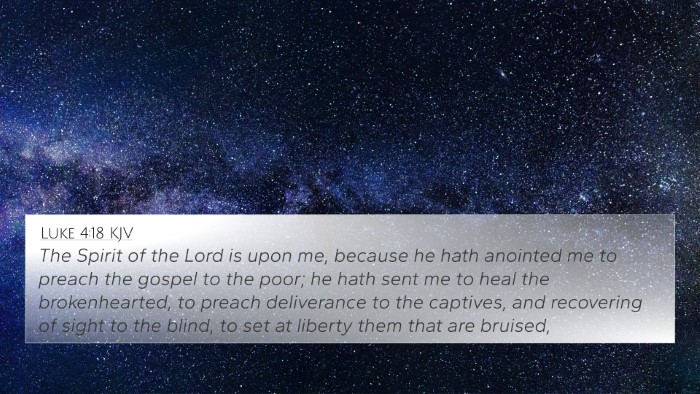Understanding Isaiah 48:16
Verse: Isaiah 48:16 - "Come near to me, hear this: I have not spoken in secret from the beginning; from the time that it was, there am I: and now the Lord God, and his Spirit, hath sent me."
Summary of Meaning
This verse reflects God's open nature and the direct communication He has with His people. Isaiah, as a prophet, is calling the people to listen and acknowledge the divine message that has been present from the beginning. The reference to God and His Spirit emphasizes the unity within the Godhead and indicates the importance of the message being sent to the people.
Insights from Public Domain Commentaries
- Matthew Henry: Henry emphasizes the declaration of God's eternal presence and the importance of His revelations. He notes that God does not conceal His counsel and that the invitation to "come near" is a call for the people to engage with God directly, which is central to understanding God's relationship with humanity.
- Albert Barnes: Barnes interprets this verse as emphasizing the necessity of divine revelation and the prophetic voice in understanding God’s purpose. He highlights the phrase "hath sent me" as an indication that Isaiah speaks with the authority of God, aligning with the theme of God calling His people to heed His word.
- Adam Clarke: Clarke points out that this verse illustrates God's revealed knowledge and the consistent message through the prophets. He explains the assurance that God's Spirit supports the message, indicating its truth and significance for the people.
Cross-References
The following Bible verses relate to Isaiah 48:16 and expand its meaning through connections in scripture:
- John 14:16-17: The promise of the Holy Spirit emphasizes God's continuous presence with His people.
- Revelation 2:17: The divine invitation to come and listen to the promised words from God.
- Acts 2:17-18: A fulfillment of God's prophetic spirit poured out on all flesh, linking to God’s ongoing communication.
- Isaiah 44:3: A promise of the outpouring of God's Spirit, highlighting the consistency in God's message.
- Isaiah 61:1: The anointing of the Spirit connects to the prophetic ministry, emphasizing God's role through His Spirit.
- Matthew 10:20: Assurance that the Spirit will provide the words to say, affirming the divine communication theme.
- 2 Peter 1:21: An affirmation that prophecy comes not from human will but from the Spirit of God, supporting the revelatory nature of God.
Thematic Connections
This verse serves to highlight the following themes throughout Scripture:
- Divine Communication: God’s continuous revelation throughout history.
- Unity of God and His Spirit: Demonstrates the harmony in the roles of God and His Spirit in imparting truth.
- Call to Listen: The repeated divine invitation to come near and heed the message reveals God’s desire for relationship.
- Authority of Scripture: Establishes the prophetic authority inherent in the messages delivered by God’s chosen messengers.
Additional Reflections
In understanding Isaiah 48:16, readers are invited to explore tools for Bible cross-referencing, utilizing a Bible concordance or cross-reference guide. Identifying connections can bring deeper insights into themes prevalent across both the Old and New Testaments.
Additionally, exploring the inter-Biblical dialogue invites a comparative study of covenant themes and prophetic voices that speak to God’s relationship with humanity. This can enhance one's understanding of how individual verses and broader biblical narratives interact.
Conclusion
Isaiah 48:16 thus stands as a profound statement about God’s unchanging presence and the importance of listening to His message. The verses cited reinforce the understanding that God desires a relationship with His creation through sincere engagement with His revelations.












